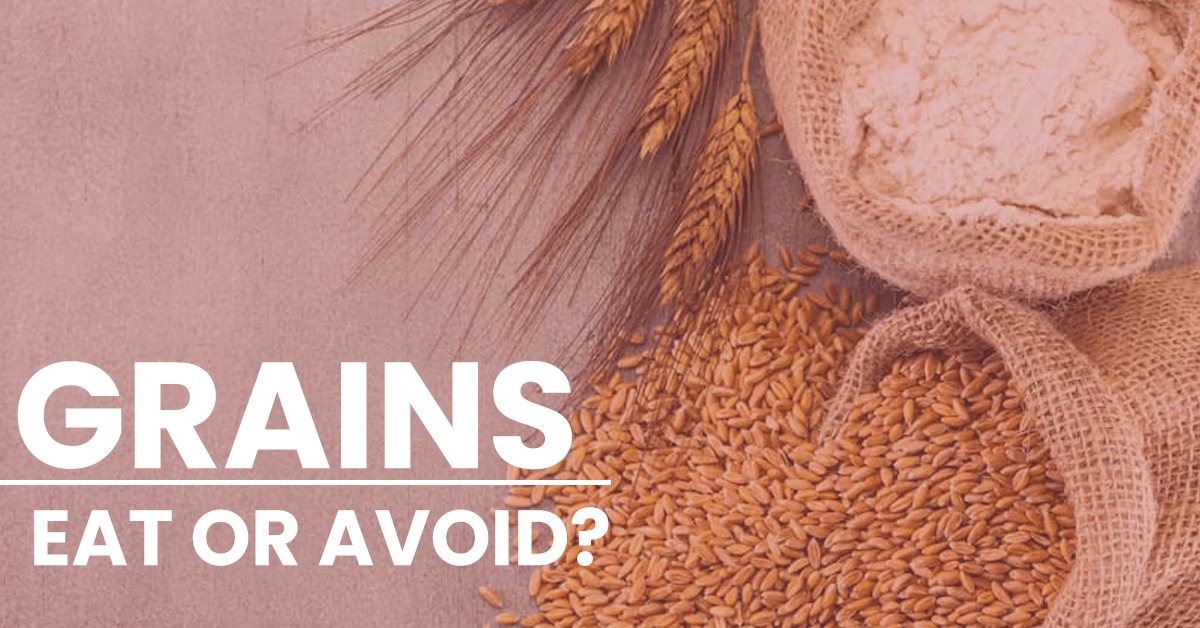FREE CASH ON DELIVERY & SHIPPING AVAILABLE OVER AED 10

Every day, it seems, we are bombarded with new information on diets, nutrition, what we should eat, and what we should avoid. Studies provide us with facts and figures, and online health gurus exaggerate the importance of various fruits and veggies ranging from apples to zucchini. Sifting through this often-confusing information can be intimidating when attempting to decide all aspects of a healthy lifestyle, particularly with regard to eating.
Always remember that we know our bodies best, especially how we react to various foods. We've gone back and forth about grains being an important element of a balanced diet and grains leading to digestive disorders. How do you decide which side of this dispute to accept?
Again, listen to your body and assess the benefits and drawbacks of eating or avoiding grains. A little research and some safe trial and error can help you decide whether grains should stay a part of your diet. If not, there are many substances that can be used in place of processed grains, such as gluten-free flour.
What is the total number of grains?
Yes, quite a bit. We've all heard of wheat, barley, rye, oats, rice, and corn, but there are so many more, including millet, buckwheat, bulgur, brown rice, teff, sorghum, and quinoa. They are grown all over the world and are used in a variety of cuisines ranging from baked products to cereals to main entrees. Grains are frequently used as a base for soups, salads, entrees, and desserts. With such a diverse spectrum, it's critical to understand which grains you consume and their nutritious value.
Why Do We Consume Grains?
Most grains can be an important part of a well-balanced diet rich in nutrients that benefit our bodies health. Grains are dense and can provide a feeling of satiety, which can aid with weight management by reducing appetite.
Whole grains such as kidney beans, mung beans or rice available at gerizimmount add to the variety of flavors, textures, and nutrients in the foods we eat, it is also crucial to observe the appearance of any negative health consequences following the consumption of grains, particularly those containing gluten such as wheat, rye, and barley. Gluten consumption is linked to digestive troubles and celiac disease; thus, it should be avoided if it is suspected to create problems in your digestive tract.
Are There Advantages and Disadvantages to Eating Grains?
This question has as many answers as there are grains. Like with anything we eat, knowing the nutritional advantages is critical, and grains must be considered.
Benefits of eating grains include:
• High in fiber, so you feel fuller for longer.
• Rich in vitamins and minerals connected to heart health, diabetes prevention, and weight management.
• Rich in fiber, antioxidants, and vitamin K, which are linked to a lower risk of stroke.
• Gastrointestinal health, including constipation relief and probiotic supplementation
Some of the disadvantages of consuming grains include:
• Wheat is one of the "big 8" allergens that can produce severe reactions in those who are allergic to it.
• Wheat and other gluten-containing grains are linked to digestive difficulties and autoimmune celiac disease.
• Grains have been linked to inflammation and metabolic disorders.
• Because many grains have been processed, many nutrients have been lost, and toxins or antinutrients may have been introduced.
And what is the least nutritious grain? Wheat and the gluten it contains is the loser in terms of digestive health, sensitivity, and celiac disease.
There's no doubt that nutrition selections can be perplexing at times because we are bombarded with almost as much contradicting information as we can handle. A good rule of thumb is to be conscious of what we eat, to be mindful of our bodies' reactions, and to seek assistance from a healthcare provider or nutritionist so that your healthy eating selections are founded on facts and personal experience.
Key takeaways
It is important to eat well in order to be healthy, and pulses and rice, any grain for that matter are high in a variety of nutrients. If you are in the UAE and want to Buy Dal and Pulses in the UAE, please visit our website for the best quality dal as well as other premium quality grocery items.
Premium manufacturer of nuts | dried fruits | beans | herbs | lentils and spices | Wholesale seller of pulses in UAE | high quality spices and pulses in the UAE | Pulses and Dal in UAE | Pulses Wholesalers UAE | Pulses Suppliers UAE | Indian Basmati Rice | rice wholesale | bulk rice | rice suppliers | wholesale rice suppliers | rice suppliers uae | wholesale rice dubai | rice distributors uae | quality Rice Flour | rice flour supplier | Black Chick Peas | rice flour wholesale price Seeds | Nuts and Seeds | primium nuts | Dates | | Black Eye Beans | Dosa Idli Rice | Basmati Rice | Thanjavur Ponni Rice | Sona Masoori Rice | Palalkkadan Matta Rice | Pistachio | Cashew | Almonds | Atta Wheat Flour | Rice Flour | Maida Flour | Chick Peas Jumbo Masoor Dal | Urid Dal Gota | Chana Dal Split | Moong Whole | Indial rice in uae | wholsale nuts | Wholsale seeds | Wholesale rice | Primium quality nuts and seeds
© Copyright 2020 Gerizimmount. All Rights Reserved. Designed by Samadpro
